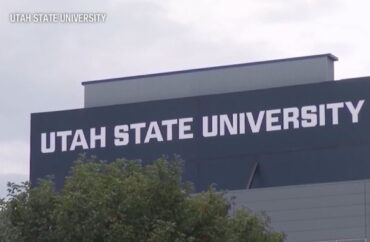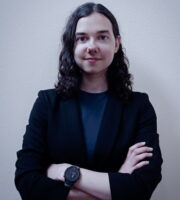
Utah State University’s Vice President of DEI now ‘special advisor’ to the president
Public universities in Utah are shutting down DEI offices to comply with a new state law, but they are opening new centers that offer the same or similar services under new names, a review by The College Fix has found.
Bill 261, which took effect in July, not only forced public universities in Utah to shut down their DEI offices, it also banned mandatory diversity training and DEI statements in hiring and promotion decisions.
Since then, the University of Utah opened two new student resource centers to all students: “The Center for Community and Cultural Engagement” and “The Center for Student Access and Resources.”
These centers “still provide the same level of support—in advising, scholarship preparation, resource referrals and mentorship—that our now-closed centers provided,” University of Utah spokesperson Heather King told The College Fix.
She pointed The Fix to multiple stories of how students are now opening new clubs to replace ones that had to be shut down as well as those that chose to withdraw from being affiliated with the university so they do not have to comply with Bill 261.
According to King, the University of Utah had to shut down its “Women’s Resource Center, LGBT Resource Center, Black Cultural Center and Center for Student Equity and Belonging.”
The vice president of University of Utah described the closures as a “‘grieving process’ for many staff members,” as previously reported by The College Fix.
The Salt Lake Tribune reported that the University of Utah changed its Office of Inclusion and Diversity to the Office of Institutional Engagement and Effectiveness.
King told The College Fix that the university “heard from several student and faculty groups impacted by the legislation—especially the loss of comradery and networking opportunities with friends and mentors with similar backgrounds and life experiences.”
The University of Utah is in the process of conducting a campus climate survey, as required by Bill 261.
“The purpose of this survey is to assess student, faculty, and staff perceptions of and experiences with the university’s campus freedom of speech and academic freedom environment as well as policies and practices for freedom of expression” and the results will be published in summer of this year, King said.
Amanda DeRito, spokesperson for Utah State University, pointed The College Fix to a news release addressing what Utah State University is doing to comply with state law.
According to the article, Jane Irungu, who had the title of Vice President of Diversity, Equity, and Inclusion, will now be “a special advisor to President Cantwell.” Cantwell is president of Utah State University.
“Irungu will advise and influence the university’s strategic planning” to ensure that they [Utah State University] expand “access and opportunity for all members of our campus community,” the release states.
“The Inclusion Center’s programs will be reorganized and reassigned within the Academic Enterprise,” it adds.
Student clubs at the Inclusion Center will be reassigned to Student Involvement and Leadership where they will be “operated consistent with the USUSA clubs and organizations’ policies and procedures.”
Support services at Utah State University offered by the Inclusion Center will now be offered by central student support services “including the CARE office, and Academic Belonging and Learning Excellence,” according to the article. A new Center for the Study of Community is also being added for “community building, cultural celebrations, and education.”
Additionally, the Latinx Cultural Center and the Native American Cultural Center will be “reviewed and adjusted so that they are in full compliance” with Bill 261.
Another university in Utah, Weber State, recently removed “inclusion” and “equity” from the school’s official mission statement to comply with Bill 261, according to the Salt Lake Tribune. Additionally, Weber State closed “all of its identity-based centers.”
A professor at Westminster University, which is a private university in Salt Lake City, compared banning DEI at schools to banning black people from swimming pools in an opinion editorial to The Salt Lake Tribune.
Professor Tamara Stevenson recently argued in an op-ed that restrictions to DEI programs in Utah is comparable to “historical resistance to racial integration of public swimming pools.”
“These retaliatory methods reflect the self-sabotaging dynamics of the zero-sum principle, whereby one person’s or group’s gain equals another’s loss,” Stevenson wrote.
She added that “when public pools closed, everyone [not just minorities] lost the benefits of community connections, better public health and access to shared spaces.”
The College Fix reached out to Stevenson to ask how Westminster University has been affected and to clarify her point of view on DEI. A university spokesperson responded for Stevenson and said she was not available for an interview at this time.
MORE: Transgender RA in co-ed dorm at Utah State University prompts controversy
Like The College Fix on Facebook / Follow us on Twitter






Please join the conversation about our stories on Facebook, Twitter, Instagram, Reddit, MeWe, Rumble, Gab, Minds and Gettr.